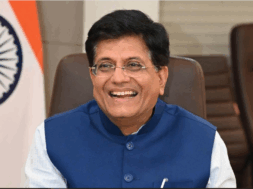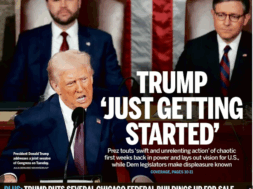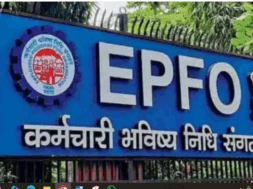
Manas Dasgupta
NEW DELHI, July 22: The Supreme Court on Monday stayed till the next hearing on Friday the Uttar Pradesh and the Uttarakhand governments’ controversial order directing all the eateries on the route of the “Kanwar Yatra” to compulsorily display the names of the owners and all the staff members and ordered the police in the two states not to enforce the order except for asking the owners to display the food articles they sold.
The court also issued notice to States through which the yatra traverses, including Uttar Pradesh, Uttarakhand, Delhi and Madhya Pradesh. It said States not impleaded, but through which the yatra would pass, shall be issued suo motu notice. The court listed the case on Friday.
The order had been slammed by the opposition; AIMIM leader Asaduddin Owaisi – who has claimed this move is to ensure no ‘kanwariya (pilgrim) buys from a Muslim-owned shop – had compared it to Apartheid in South Africa and the boycotting of Jewish business in Nazi Germany.
A Bench of Justices Hrishikesh Roy and S.V.N. Bhatti said stalls, hawkers, vegetable sellers, dhaba owners, etc., on the Kanwariya route were free to display the kind of food they sold but should not be compelled by the police to display the names or, for that matter, the caste or religious identity of their owners or employees.
The court said it was permissible for authorities to ensure that Kanwariyas were served vegetarian food, conforming to standards of hygiene and according to their dietary preferences. However, the police could not usurp the powers of municipal authorities through orders that restrict freedoms without the support of law. The court acknowledged that the impact of the directives was spread across multiple States, requiring it to judicially intervene immediately.
The order came on separate petitions filed by the Association for Protection of Civil Rights, represented by senior advocate C.U. Singh and others, including Trinamool Congress MP Mahua Moitra, academic Apoorvanand Jha, and columnist Aakar Patel. The petitioners were filed challenging the directive issued by the Senior Superintendent of Police, Muzaffarnagar, in Uttar Pradesh, to shop owners to display their names outside shops during the Kanwar Yatra season. The police had said that the decision was in the interest of law and order.
The petitioners argued that the directives affected the secular character of the nation, infringed the secular values enshrined in the Preamble to the Constitution, and violated fundamental rights of equality, caste non-discrimination, and dignity of life.
The directives had led to the forcible retrenchment of employees working in the shops en route the Kanwar Yatra, both Hindu employees working in shops owned by Muslims and the Muslims working in Hindu shops, amounting to the violation of the fundamental right to earn a livelihood or do business or trade. Reports from UP and Uttarakhand had stated that a large number of Hindu workers were retrenched by the Muslim owners fearing that their business would be hit by the order while the Hindu owners removed the Muslim workers apprehending that their shops would not be visited by the Kanwariyas if the Muslim employees worked.
“It would require very large boards to display the names, caste and other identity details of the owners and all the employees. This is sheer exclusion by identity,” senior advocate A.M. Singhvi submitted. Those who ignored the directives either had to pay hefty fines or face legal proceedings. The directives were compulsory in nature though couched in language suggesting shop owners could take a voluntary decision.
“There is a Catch-22 situation here… If I don’t put my name, I will be fined. If I put my name, I may be discriminated against owing to my religious identity or caste,” Mr Singhvi said. Senior advocate Huzeifa Ahmadi, for Mr Jha and Mr Patel, said the directives formalised a “form of untouchability.” “They created an apprehension in the minds of employees. They are made to feel that they are unsafe unless they display their names,” Mr Ahmadi argued.
The bench also made some strong observations this afternoon, noting “Compelling all proprietors to display names and address, also of their staff, can hardly achieve intended objective…” Justice Roy reasoned, also adding, “…without support of provisions, if the directive is permitted to be enforced… it will infringe the secular character of Republic of India.”
Food, and who cooks and serves at restaurants, was at the core of arguments this morning. “You go to a restaurant depending on the menu, not who is serving. The idea of this directive is exclusion by identity. This is not the Republic of India we envisaged in Constitution…” senior advocate Abhishek Singhvi, appearing for the petitioners, said forcefully.
“There are a lot of ‘pure vegetarian’ restaurants run by Hindus… but they may have Muslim employees. Can I say I won’t eat there? Because food is somehow ‘touched’ by them?” The petitioners also flagged a “worrying situation where police are taking it upon themselves to create a divide… minorities would be identified and subject to boycott…” The reference was to the enforcement of what the authorities had said was a directive to be followed “voluntarily.”
“It has never been done before… has no statutory backing. No law gives police power to do this. The directive is for every hath-gaadi (hand-cart), tea-stall… giving of names of owners and employees does not serve any purpose…” Mr Singhvi said, hitting out at the “camouflaged order.”
Mr Singhvi underlined, for the court, the element of coercion in the directive. “News reports show a Municipal Corporation directive… that fines of ₹ 2,000 and ₹ 5,000 will be imposed…”
There was also a discussion on food safety and standards, to which Justice Bhatti had a humorous and telling anecdote. “There is one vegetarian hotel run by a Hindu and one by a Muslim in Kerala. As a judge in that state I used to go to the one run by the Muslim. He had international standards…”
The petitioners also countered authorities’ insistence that the Kanwar Yatra directive is voluntary, claiming UP Chief Minister Yogi Adityanath had “made a public statement that the directive must be enforced… so far as Uttarakhand, there was a similar statement (by Pushkar Singh Dhami).” “This is being endorsed at the highest level in both UP and Uttarakhand… the effect is that employees of certain community have been fired after this,” the petitioners argued.
Last week police in UP’s Muzaffarnagar mandated all food joints along the route to prominently display names of owners. “This is being done to ensure there is no confusion among kanwariyas, and no allegations are raised in the future, leading to a law and order situation,” the cops said.
“Everyone is following this of their own free will…” the police said at a press conference. Shortly afterwards the UP government extended this order across the state.
The opposition has slammed the directive and at least three allies of the ruling Bharatiya Janata Party, including Bihar Chief Minister Nitish Kumar, whose support at the centre is crucial to the BJP, and union ministers Jayant Chaudhary (Rashtriya Lok Dal) and Chirag Paswan (Lok Janshakti Party).
The BJP government in Madhya Pradesh, however, has clarified that it has not issued any instructions requiring shop owners to display their names along the Kanwar Yatra route in the state, and there is no such compulsion. The MP government has asked urban bodies to refrain from spreading any confusion.
A statement was issued by the Urban Development and Housing Department (UDHD) on Sunday night, days after the Ujjain mayor claimed shop owners had been directed to display their names and phone numbers on boards. No instructions have been issued at the state government level regarding writing the names of shop owners on boards of their establishments along the Kanwar Yatra routes in urban areas, the UDHD stated.
Ujjain mayor Mukesh Tatwal last week cited a purported decision of the mayor-in-council dated September 26, 2002, and claimed a proposal asking shopkeepers to display their names had been approved. He claimed the approval was forwarded to the state government for objections and all formalities have been completed.
Stating that such reports are inaccurate, the UDHD instructed urban bodies to avoid spreading confusion regarding directives to shop owners along the Kanwar Yatra route, emphasising that Madhya Pradesh Outdoor Advertisement Media Rules, 2017, do not compel shop owners to display their names on boards.
“Boards can be put up on shops under the Madhya Pradesh Outdoor Advertisement Media Rules, 2017. There is no compulsion to display the name of the shop owner on these boards,” the UDHD stated. Following the mayor’s comments, the Ujjain Municipal Corporation also confirmed that no proposal is in place to mandate the display of names and phone numbers on shop boards in the city.
Meanwhile, extensive arrangements have been made across states for the yatra that started this morning, as the month of Sawan begins in the Hindu calendar. During this time lakhs of Shiva devotees carry holy water from the Ganges in Haridwar to their homes and offer it at temples on their way.













